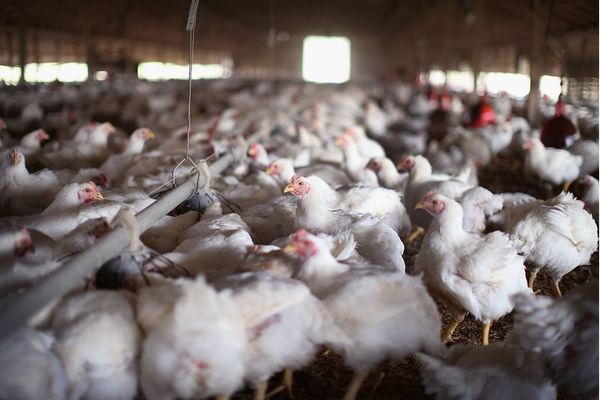There are currently more than 64,000 people living in Ireland with dementia.
Scientists have been working tirelessly to develop new treatments and posisbly find a cure for the illness.
Dementia is often referred to as an umbrella of conditions or Alzheimer's disease, the most common form of dementia.
However, there are other types of dementia, including frontotemporal dementia, and craving three types of food can signal this form of brain decline.
READ MORE: The ‘early’ warning symptom of dementia which affects almost half of patients
Frontotemporal dementia (FTD) is one of the rarer forms of dementia and causes problems with behaviour and language.

Some cases of FTD are linked to motor neurone disease and its early symptoms can vary, depending on which area of the brain is affected.
These symptoms can arise in several different ways and in different areas of the individual’s life, including when they eat.
According to charity Alzheimer’s UK, patients may “crave sweet, fatty foods, or carbohydrates and forget their table manners”.
The charity adds: “They may also no longer know when to stop eating, drinking alcohol, or smoking.”
As well as change in eating habits, other symptoms of FTD are:
• Being insensitive or rude
• Acting impulsively
• Loss of inhibitions
• Seeming subdued
• Losing interest in people and things
• Losing drive and motivation
• Inability to emphasis with others
• Repetitive behaviours
• Compulsive eating
• Neglecting personal hygiene
• Using words incorrectly
• Loss of vocabulary
• Repeating a limited number of phrases
• Forgetting the meaning of common words
FTD is more common in younger people aged 45-65, but can also develop in older individuals.
It affects the front section of the brain, and the temporal lobes (over the ears). If the frontal lobes are affected, the person will have increasing difficulty with motivation, planning and organising, controlling emotions and maintaining socially appropriate behaviour and will have difficulty with speaking and/or understanding language.
Generally, although most people who develop dementia are over 65, it can affect younger people too.
Most people with early onset dementia are in their 40s or 50s.
Doctors don’t usually suspect dementia in younger people and so the process of getting a diagnosis can be difficult.
People who develop dementia at a younger age may have a strong family history of dementia and their genetics may play a role in the development of their condition.
Early onset dementia can also affect those with another health condition such as Parkinson’s disease, multiple sclerosis, Huntington’s disease, HIV or AIDS.
Get breaking news to your inbox by signing up to our newsletter







